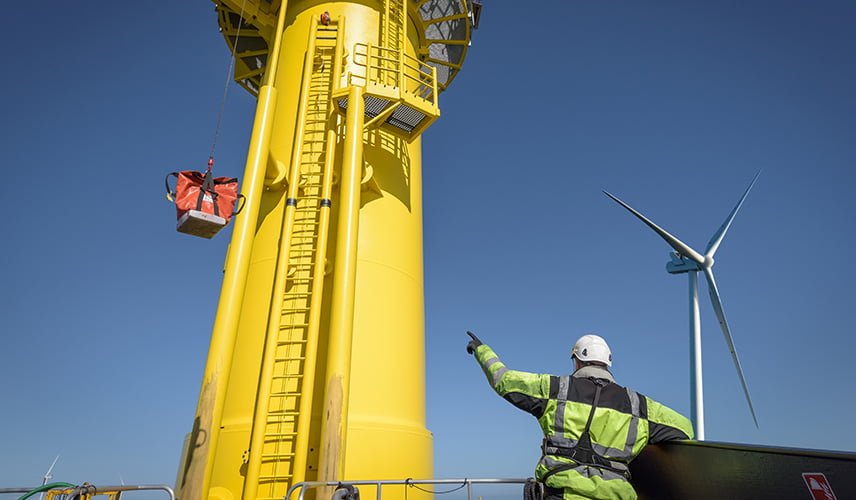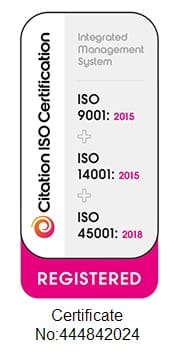LIFT SUPERVISORS

An Offshore Lifting Supervisor in the Renewable Energy Offshore Wind Industry is a specialised role responsible for overseeing and ensuring the safe and efficient execution of lifting and hoisting operations during the construction and maintenance of offshore wind farms. This role plays a crucial part in preventing accidents, ensuring compliance with safety regulations, and maintaining the integrity of critical equipment and structures.
An Offshore Lifting Supervisor in the Renewable Energy Offshore Wind Industry is an essential role for ensuring the safe and efficient execution of lifting operations critical to the construction, maintenance, and operation of offshore wind farms. This position contributes significantly to the overall safety and success of offshore renewable energy projects.
Safety Oversight: Prioritise safety as the foremost concern, continuously monitoring and enforcing safety procedures, standards, and regulations during lifting and hoisting operations.
Lifting Plan Development: Collaborate with the project's engineering and construction teams to develop detailed lifting plans, which include load calculations, equipment selection, rigging configurations, and risk assessments.
Equipment Inspection: Conduct thorough inspections of lifting equipment, including cranes, hoists, slings, shackles, and other hardware, to ensure they are in proper working condition.
Operational Coordination: Coordinate lifting activities, including the positioning of equipment and personnel, to ensure that lifts are executed safely, efficiently, and in accordance with the approved plans.
Documentation: Maintain accurate records of all lifting operations, including lift plans, equipment inspection reports, safety permits, and incident reports.
Emergency Response: Develop and implement emergency response plans for potential incidents, such as equipment malfunctions or adverse weather conditions, and oversee evacuation and rescue procedures if necessary.
Risk Assessment: Identify potential risks associated with lifting operations and develop mitigation strategies to minimise the likelihood of accidents and injuries.
Communication: Effectively communicate with the crane operator, rigging team, and other stakeholders to ensure that everyone is aware of their roles and responsibilities during lifting operations.
Regulatory Compliance: Ensure compliance with relevant offshore safety standards, industry best practices, and local regulations governing lifting and hoisting operations.
Technical Expertise: Maintain a strong understanding of lifting and rigging techniques, crane operation, load dynamics, and offshore wind farm equipment.
Quality Control: Conduct post-lift inspections to verify that loads are correctly positioned, secured, and in compliance with project specifications.
Education: A high school diploma or equivalent is typically required. Specialised training in lifting and hoisting operations, safety, or a related field is highly recommended.
Certifications: Relevant certifications such as Lifting Supervisor Certification, Crane Operator Certification, and safety certifications (e.g., OSHA) are often required.
Experience: Several years of experience in lifting and hoisting operations, preferably in the offshore wind industry or a similar field.
Technical Knowledge: In-depth knowledge of lifting equipment, rigging techniques, load calculations, and offshore safety protocols.
Safety Orientation: A strong commitment to safety with a demonstrated track record of adhering to safety standards and promoting a safe work environment.
Problem-Solving: Proficient problem-solving skills to address technical challenges and make quick decisions during lifting operations.
Communication: Effective verbal and written communication skills to convey instructions, coordinate activities, and provide clear documentation.
Teamwork: The ability to work collaboratively with crane operators, rigging teams, and other personnel involved in lifting operations.
Physical Fitness: Good physical fitness and stamina are important, as offshore work can be physically demanding.
CONTACT RELO WIND
We are dedicated to be the premier source of skilled personnel and exceptional teams, driving successful growth for our clients and partners. We are committed to delivering the talent and expertise needed to fuel achievement, innovation, and lasting success together.

